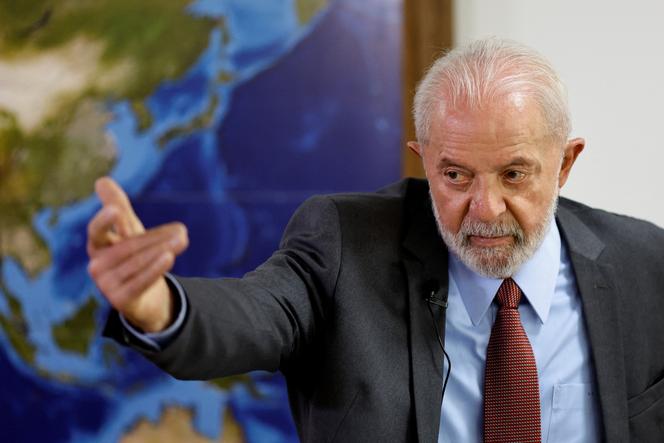


"I only live to pay off my debts!" sighed Johnny de Souza Brandao, as he set up his stall where he sells souvenirs to tourists strolling along Copacabana beach in Rio de Janeiro. A 37-year-old father, he holds three jobs and works 16 hours a day to pay off the purchase of a 200 reais (€36) microwave on credit.
After losing his job, the construction worker was unable to repay the sum he had borrowed, which he had spread over several months. Very quickly, the interest rate pushed his debt up to 4,000 reais (€730). It was like "a snowball," explained the worker, now deprived of a credit card by his bank. "I have to ask a friend to do my shopping for me and I'm paying him back little by little," he said.
Like de Souza Brandao, 40% of the Brazilian population is unable to pay its debts, according to data from the Credit Protection Service (SPC). In Brazil, the low incomes of many citizens prevent them from meeting their needs, forcing them to resort to credit. Access to credit was expanded under Lula's first terms, from 2003 to 2006 and then from 2007 to 2010, and is often used for essential purchases.
Since the Covid-19 pandemic, this situation has become critical. Rising unemployment has strained purchasing power, increasing the number of indebted families from 63.6% in 2019 to 76.6% in 2023, according to the National Confederation of Commerce. At the same time, the central bank has raised the key interest rate, now set at 10.75%, to curb inflation. The interest rate charged for revolving credit then skyrocketed, reaching an average annual rate of 440.8% in 2023. "It's impossible to pay back!" said de Souza Brandao indignantly.
Fearing that over-indebtedness would lead to a slowdown in consumption, President Lula launched the "Desenrola" ("unwind") program in July 2023, in partnership with 600 companies, including the country's leading banks. The program aims to renegotiate over 70 million people's unpaid debts that occurred between 2019 and 2022. "We're going to save at least 72% of the indebted population and enable them to return to the consumer market," the former metallurgist promised on July 18, 2023, during his weekly YouTube broadcast.
As soon as it came into force, the program automatically canceled 10 million debts of less than 100 reais. Initially, it enabled people with incomes of up to 20,000 reais (€3,640) to renegotiate their debts directly with their banks. Then, in October, the government set up an online platform for renegotiating debts and unpaid bills of less than 20,000 reais for people earning less than two minimum monthly salaries (2,640 reais, or €480) or benefiting from social programs.
You have 47.84% of this article left to read. The rest is for subscribers only.
